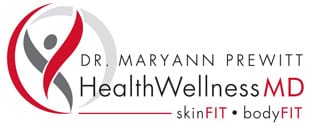Vitamin D Update – Benefits Beyond Bone Health
The majority of modern Americans, particularly those of us who live and work in urban environments like Dallas, need more Vitamin D than we currently take in—especially during cold weather months when sunlight is scarce. More than a billion people worldwide suffer from D-deficiencies; alarmingly, most have no clue. For some time, researchers have documented the vital role of Vitamin D in the skeletal development of children and in the maintenance of bone health as people age. Milk producers have added Vitamin D to the U.S. milk supply to augment calcium absorption, which is necessary for bone growth. And we know that Vitamin D can prevent bone diseases like osteoporosis and rickets. But the benefits of this multi-tasking nutrient hardly stop there.
Scientists know that Vitamin D supplements are highly effective in improving D-levels while also providing more health benefits than previously believed. This news, however, has been slow to filter down to the general public. I see patients on a daily basis who are surprised to learn that they have dangerously low levels of Vitamin D.
D-deficiency reaches epidemic proportions
Many Americans have no idea that they need to add daily D supplements to their diet. Still others tell me that they are already taking supplements from their neighborhood health food or drug store. What they don’t know is that many such widely available vitamins are inferior, and worse, ineffective. That’s why I encourage all of my patients to purchase only medical-grade supplements. At my Dallas clinic, HealthWellnessMD, we recommend and sell nutraceuticals from Thorne Research and BioTE© Medical, the wellness company founded by Dr. Gary Donovitz.
What else can D do for me?
Recent research continues to provide evidence of the numerous non-skeletal benefits of Vitamin D. Nerve, muscle, and cardiovascular health—as well as proper immune system functioning—all depend upon this essential organic compound. New studies confirm that Vitamin D helps fight many forms of cancer. For our thyroid to function properly we need to maintain a steady store of D; keeping your D levels up, can even help keep pounds down.
And this is big! The introduction of additional Vitamin D, known as the “sunshine vitamin,” has a positive effect on many patients with depressive disorders. This impact is particularly true for those who suffer from Seasonal Affective Disorder (SAD). Some patients may even be able to stop taking their antidepressant medications once their D returns to healthy levels. This is why I emphasize nutraceuticals over pharmaceuticals for all of my patients. Of course, you always want to consult your mental healthcare provider before changing your medication protocols. However, over-medication presents a whole new set of health challenges.

Vitamin D, the “sunshine vitamin,” helps ward off depression.
Positive non-skeletal impacts of Vitamin D:
- improved cardiac health & reduced risk of congestive heart failure
- prevention of many chronic diseases, including autoimmune disorders
- improved neuromuscular & lower extremity function in older adults
- increased muscle strength & substantial decrease in risk and death from falls
- Vitamin D-3 may be a beneficial cancer-fighting nutrient in women and men
- prevention of clinical depression and Seasonal Affective Disorder
- improved thyroid function & weight-control
- reduced mortality rates: low Vitamin D is a predictor of all-cause-mortality
Supplement your health and your mood with Vitamin D
You can get Vitamin D in three ways: through the skin, from your diet, and from supplements. One of the best sources comes directly from the sun penetrating the skin. The human body intrinsically craves sun-derived D—after exposure to sunlight, your body synthesizes Vitamin D naturally. However, people today spend much more time indoors (on computers, in cars/trains, at work) than our primitive ancestors.
The modern human body, including the brain, simply has not evolved at the pace set by modern technology—technology that has resulted in a lifestyle that continues to chip away at the hours people spend outdoors. Because of this, you must take deliberate steps to get moderate amounts of sun (15 to 20 minutes) on a daily basis.
Vitamin D also benefits mental health status and helps to ward-off certain types of depression. D-deprivation may partially explain why so many people feel “blue” during winter months and suffer from SAD when the days offer sparse, weak sunlight. Countries with a short supply of sunlight, day in and day out, such as Finland and Iceland report the highest suicide rates. Citizens of countries with consistently poor levels of sunlight must take Vitamin D supplements or eat D-fortified foods on a daily basis. We’re fortunate to have lots of sunlight here in Dallas—just make sure you soak it in responsibly.
Tips for optimizing your D absorption:
- Make sure to take off your sunglasses for 15-20 minutes when you’re outside for maximum absorption. While Ray-Bans block harmful rays, your shades may also block beneficial D.
- Love gardening or talking to the birds on your back patio? Get outside and get your hands dirty.
- Take your laptop outside with you–try working on your next novel outdoors instead of holed-up inside at your desk.
Be careful. Too much sun can present a number of health detriments, such as pre-mature aging and skin cancer. Because of this, many people look for alternative ways to get adequate vitamin D.
Getting D from your diet
While I recommend eating many D-rich foods, you should know it’s almost impossible to consume adequate amounts from your daily diet. Foods like eggs, cod liver oil, and fish such as salmon, tuna, mackerel, and sardines deliver a decent dose of D. Although some yogurts are fortified with Vitamin D, not all are, so don’t assume—make sure to read the labels.
The second best source of D comes from quality medical-grade supplements and taking them makes dosage easy to track. As always, check with your healthcare provider for advice about how much supplemental D you need. And, remember Vitamin D is best absorbed at mealtime, and preferably with healthy fats. I take mine with avocados, nuts, or olive oil…for thyroid function, mental health, bone health, and beyond.




